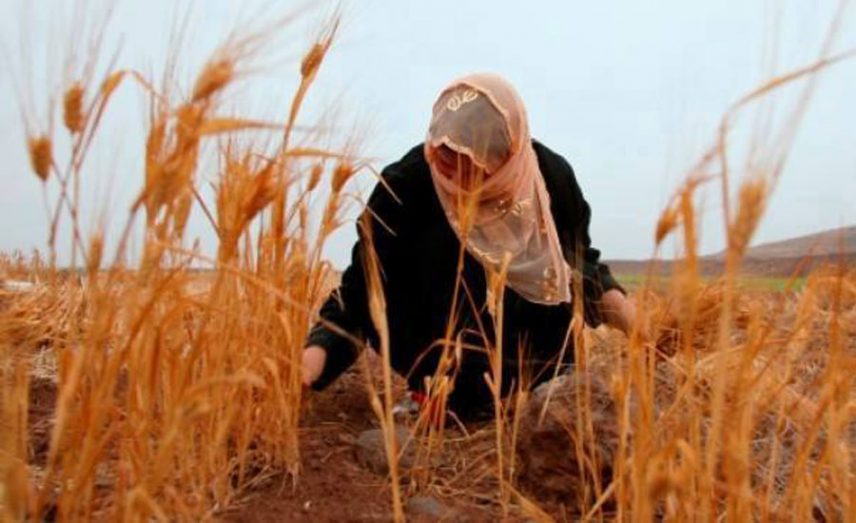The Syrian struggle has caused one of the world’ largest migration crises of our times. Syrians have scattered around the world in search of safety from imminent death and destruction.
Many Syrians turned towards Jordan and the poorer among them resigned themselves to life in Zaatari refugee camp. Built in the northwest of Jordan in July 2012, Zaatari camp has sheltered over 124,000 Syrian refugees. It is the second largest camp in the world, and has become the fourth most populous city of Jordan.
The earlier refugees are among the lucky few whose residences enjoy power connection and a comparatively higher degree of security. However, as larger numbers of refugees overwhelmed the camp, the Jordanian government and UNHCR were forced to set up tents and caravans without paying due attention to safety and comfort.
Featuring white caravans and tents that merge into the desert background surrounding them, the camp presents a horrid image. Yet you still hear women laughing and chatting inside their small rooms or kitchens. Their laughs and chatters are redeeming and give a ray of hope that the terrible circumstances they live under has not taken away their hope for life and their ability to give. Each one of these women is seeking a solution for her family and thus they have proved that Syrian women can and do create life no matter how bad the circumstances may be.
The women inside the camp do whatever they can to survive with whatever means available to them. Inside the tents, you can see empty cans turned into kitchen utensils, or old clothes turned into blankets to sleep under. But there are also women who managed to find paid employment, allowing their families not to have to rely on charity.
If you wandered around Zaatari's main street, popularly called the market, you would meet many girls selling delicious hand-made food suh as makdous, pickles, and various Syrian sweets. These women sell their products inside the camp, and, occasionally, when they make it outside the camp, sell them to Jordanian citizens for higher prices.
Siham Qadah, a 26-year-old mother of three, sells the products she makes (makdous and pickles) outside the camp. She says, "the prices there are better and I can use the money to meet my children's needs without having to beg for them." She smiled and said, "At the beginning I felt embarrassed to take the food I make to sell on the street, but now I am over this; my children need me and I can't do anything else."
Most of the refugees in Zaatari are from Daraa province. They have fled to Jordan to find safety, but they were shocked by the condition of the tents and the caravans out in the desert. These people used to live in Daraa, a place known as the Syrian food basket for the abundance of its crops. The new situation has made them face tough choices, either to live off of what the camp administration offers them or try to seek their own solutions to the problems they encounter.
Thus, many women have started looking for or working jobs that match their skills and knowledge in order to eke out a small income to help the rest of the family members.
Umm Khaled, a 53-year-old woman, who escaped with her family from Busra al-Sham two years ago, is a mother of seven children and a grandmother of five. She was sitting on a street side in Irbid city with a basket full of okra. While cleaning the okra, she said "I am not happy to sit here on the street side and work from morning to noon after being used to living in a very large house. However, times have changed and I have to do whatever I can to help save what is left of my family."
She added, "I clean okra and sometimes hollow out zucchinis and eggplants. Women of the neighborhood here pay me for this. Every morning, I ask God to let me stay healthy so that I can help my children."
Rana Oweidat, 17 years old, said "I went to one of the schools here in the camp, and I was hoping to to be able to continue my studies and become a teacher, something I have always dreamed of becoming, but there aren't any colleges here in the camp and my parents can’t afford paying for my transportation costs to a college outside the camp; so I decided to pick up a job."
Oweidat, who learned how to make hair ties among other things, sells her products to a salon in the camp. "This job does not pay well but it is still better than doing nothing, besides I will train to become a hairdresser in the same salon," she continued, adding that "the refugees here are so weak; they need jobs to support themselves."
This article was translated and edited by The Syrian Observer. Responsibility for the information and views set out in this article lies entirely with the author.


